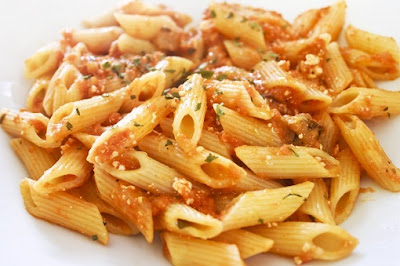
Some people may think that allergies are normal, but the truth is, it is a kind of severe reaction of our immune system. One of the chemicals produced when a person gets into an allergic reaction is histamine. Histamine is an organic nitrogen compound that is derived from decarboxylation of histidine which is an amino acid and this is the chemical that is the cause of allergic reactions. Allergic reactions manifest in many ways such as skin rashes or itchiness, runny nose and other symptoms. Most of the histamine reactions occur after being exposed to substances that cause allergies called allergens. Histamine reactions are brought about by allergies to certain types of food, medication and airborne substances.
What is a Histamine Reaction?
Histamine is produced by
mast cells and basophils when allergic reactions occur. It is a substance that
can affect many parts of the body and our body has several histamine receptors
in it. Histamine reaction is when histamine is on a particular histamine
receptor. It triggers inflammatory response in the body through dilation of the
blood vessels causing its permeability to increase and fluids enter the skin
causing inflammation and redness. Dilation of the blood vessels happens so that
the white blood cells will be able to fight off foreign substances that have
invaded the body. It is also histamine why smooth muscles contract and this is
often manifested during asthma attacks. Anaphylaxis is a severe form of
allergic reaction which is a type of histamine reaction. Anaphylaxis causes
excessive difficulty in breathing and a drop in the blood pressure. There are
histamine receptors that are found in the cells of the stomach and when
histamine reacts with these receptors, gastric acid production increases
causing irritation in the mucosa that lines the digestive tract.
Function of Histamine in the Body
The chemical histamine
is part of the immune system which is our natural defense system. In order to
avoid development of diseases, our body protects itself with antibodies such as
white blood cells, proteins, mast cells and histamine. When a foreign substance
gets in contact with our body, the immune system produces an antibody known as
immunoglobulin or IgE. This antibody together with the white blood cells enters
the blood vessels and attaches to the mast cells causing the release of
histamine thus we see various allergic reactions happening outside the body.
Cause of Histamine Reaction
Histamine reaction can
be caused by a huge number of allergens that have entered the body. Histamine
reaction is an immune response that is caused by allergens that come in the
form of molds, mites, dust, pollen and animal dander. Eating foods that can
cause allergic reactions can also attribute to histamine reactions. Insect
bites mostly from insects such as bees, ants and hornets can trigger a
histamine reaction too.
Treatment of Histamine Reaction
To treat histamine reaction, a person may be prescribed with medications and allergy shots such as antihistamines. Antihistamines are what prevent the mast cells to produce histamine which relieves the person of allergy symptoms. Allergy shots are not only given during the course of an allergy attack but they may also be given in order to lessen the sensitivity of the immune system to various types of allergens.
Tags
- histamine allergy
- histamine reaction
- histamine reaction causes
- histamine reaction rash
- histamine reaction symptoms
- histamine reactions
- histamine sensitivity
- histamines
- what is a histamine
- what is a histamine reaction
- what is histamine
- histamine intolerance symptoms
- histamine mechanism of action
- histamine function in the body
- what does histamine do
- histamine and its actions







